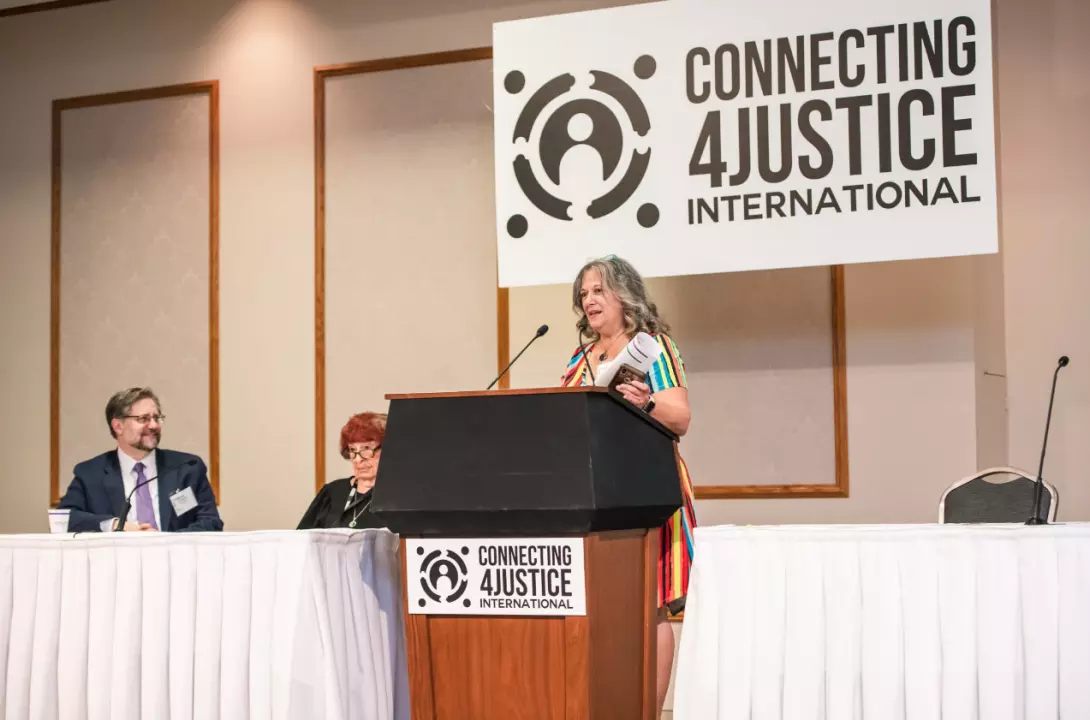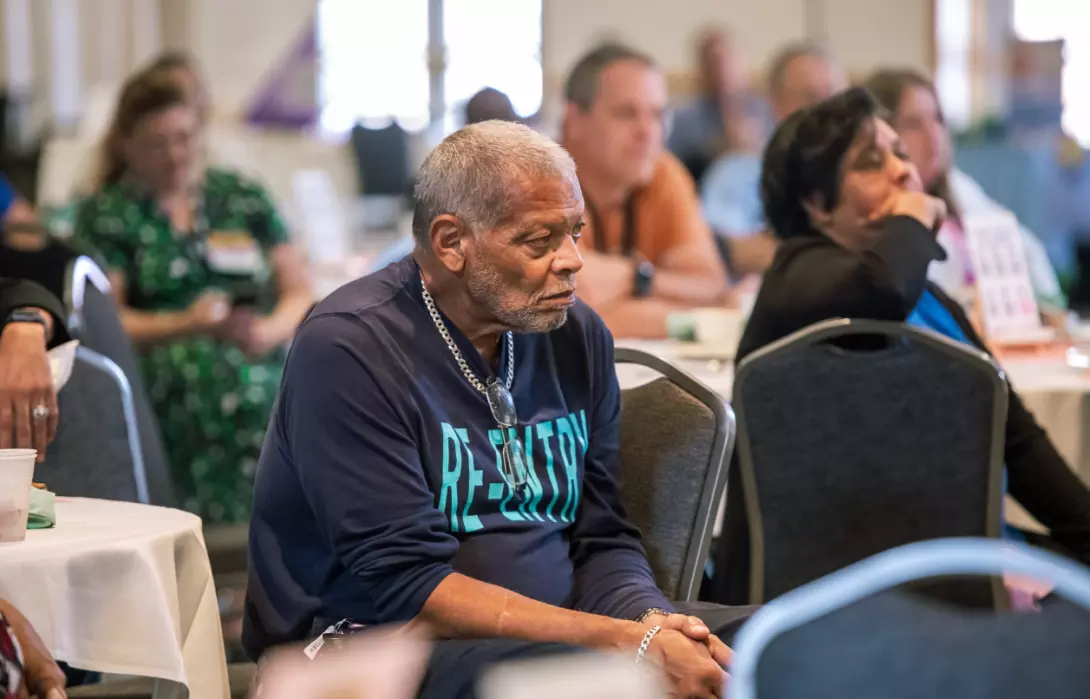
Ashland University hosts Connecting 4 Justice International Conference
ASHLAND, Ohio – With everything offered at the three-day Connecting 4 Justice International Conference at Ashland University last month, participants couldn’t go wrong with whatever sessions they chose to attend among the many available.
Sandra Joy, a professor at Rowan University in New Jersey, who also teaches for a prison, said she really enjoyed the session, “Fatherhood; Building a Legacy of Strong Families for Justice-Impacted Fathers,” she attended.
Joy, who also presented at the conference, “Bearing Witness in the Death Chamber: Vicarious Trauma Experienced by Those Who Witness Executions,” said she picked the offering about fatherhood because a friend who traveled with her from the Philadelphia area, Sharon Shoatz, was interested in it.
“That one was a little emotional for me,” said Shoatz, a retired teacher whose father spent most of her life in prison.
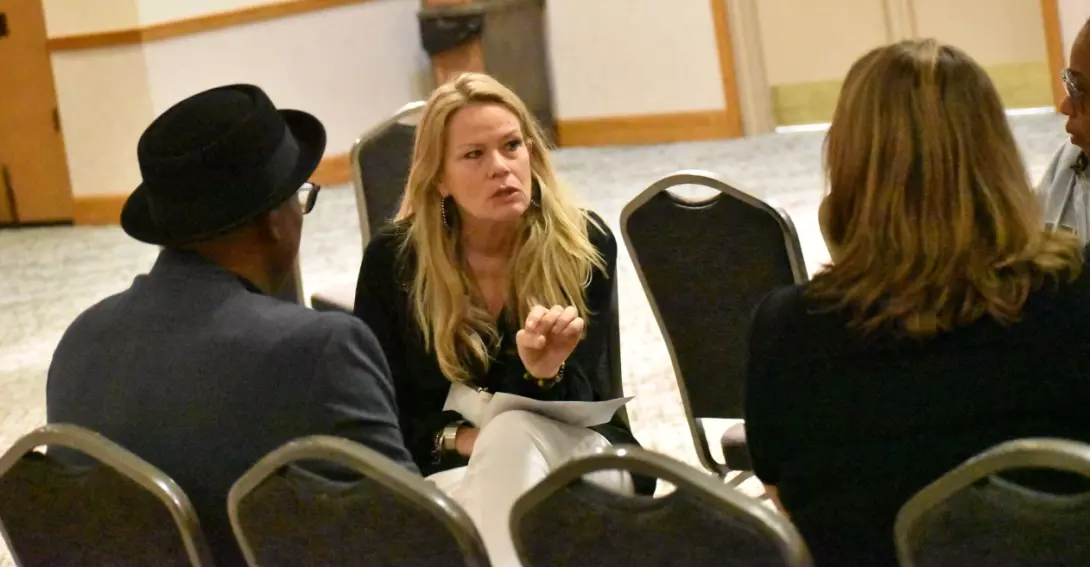
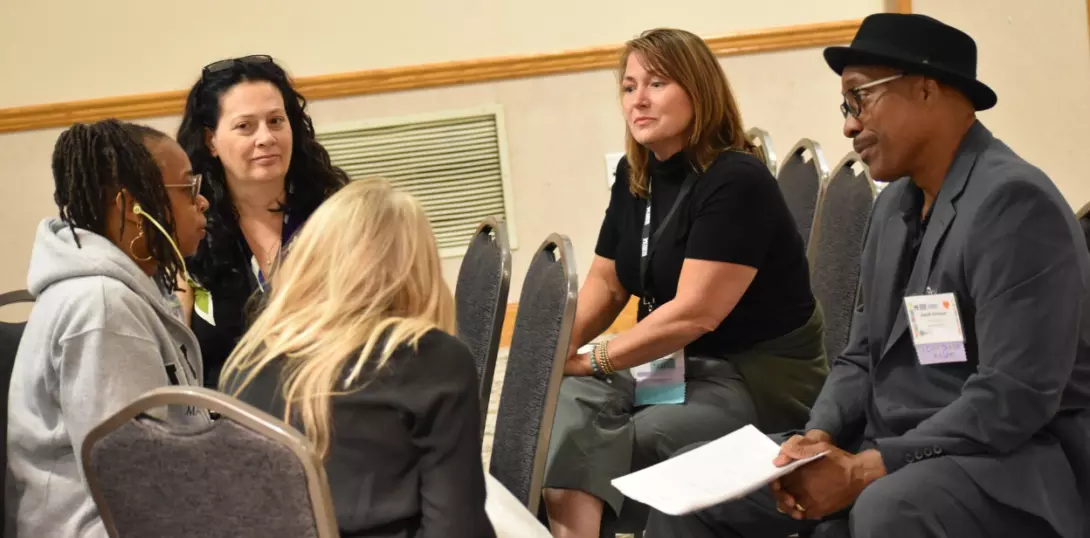

Her late father’s book, “I Am Maroon: The true story of an American political prisoner,” was available to purchase along with other books and free informational items from nonprofit, faith-based and social support organizations – like the workshops, presentations and a roundtable discussion – intended to generate ways to continue bridging gaps in the prison system.
The conference, which was from Sept. 18-20, examined the challenges and successes for transitioning out of prison and back to families and communities through many expert speakers, panelists and small-group conversations.
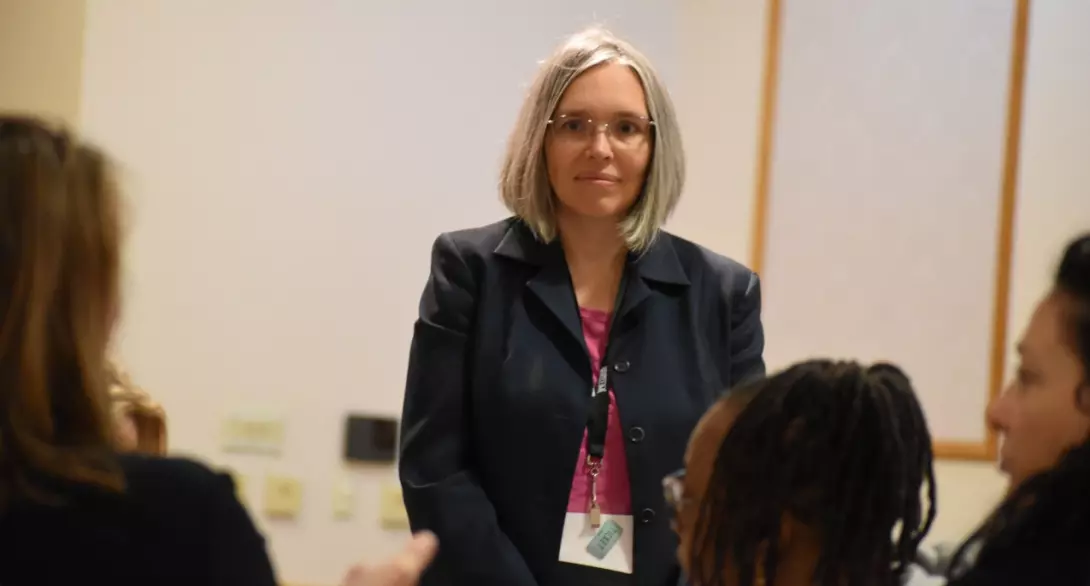
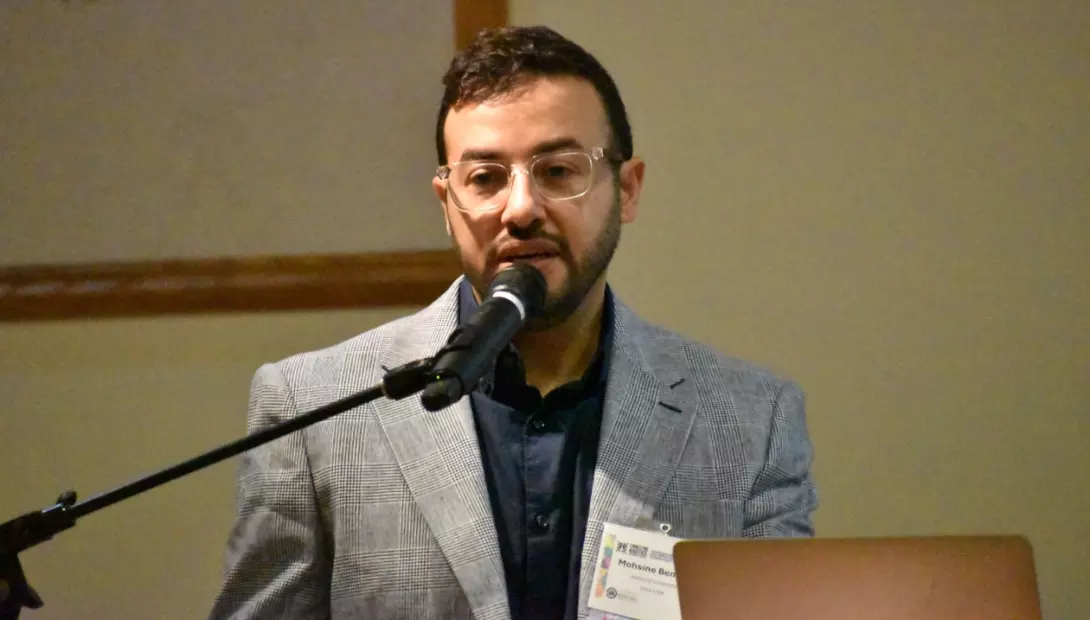
AU employees have workshop about postsecondary support
In addition to the fatherhood session, Joy and Shoatz said they also were glad they attended a workshop that was led by a pair of AU employees, Associate Professor of English Maura Grady, Ph.D., and Writing & Communication Center (WCC) Director Mohsine Bensaid, Ph.D., titled “Closing Gaps in Educational Postsecondary Support: The Example of Online Writing & Communication Guidance.”
Lisa Teitler, WCC eTutor and adjunct faculty member, helped Grady and Mohsine develop the workshop.
Joy said she loved learning about the e-tutoring services AU offers to its incarcerated students, which Grady said she believes no other college provides.
“E-tutoring could be a valuable addition if you can get access for it,” said Joy, bringing up one of the gaps in the prison system discussed in small groups during that workshop.

Conference attendees not only included Joy and other educators but also, to name a few, mental health professionals, social workers and formerly incarcerated individuals, including David Nalls.
Nalls, from the Toledo area in Lucas County, Ohio, now runs an organization that works to facilitate recovery, Reconciliation Recovery Unlimited, which he described at a workshop on the conference’s first day, which also included a welcome address from Ashland University President Jon Peede.
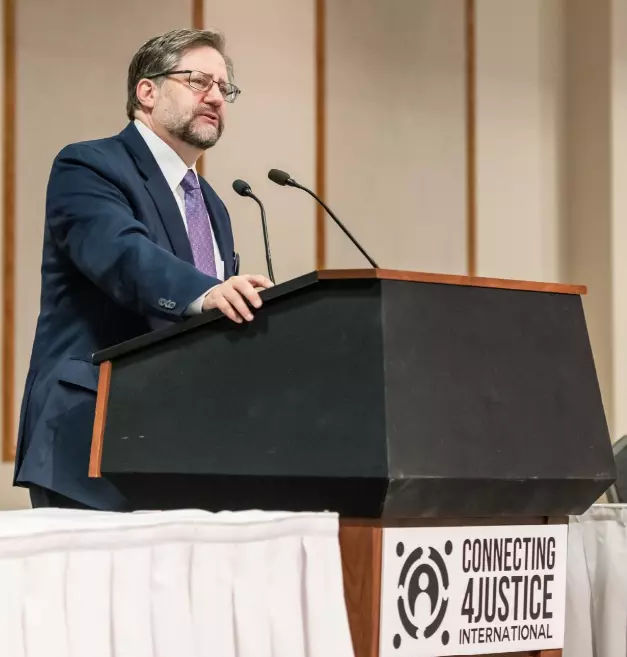
Being from Lucas County, Nalls attended the panel discussion, “Data-Informed Reentry: Lucas County Ohio’s Journey to End Overincarceration.” He also caught the end of the one led by the AU employees about e-tutoring.
“I like what Ashland does,” Nalls said. “I didn’t know they were as vital as they are as it relates to education in prisons. I am an individual who has been to prison five times and I didn’t have that education. Those services were not provided to me, so to hear that Ashland is doing it and it’s gaining traction is amazing to me.”
Because AU's Correctional Education is the longest continuously operating program of its kind in the U.S., having delivered transformative educational experiences to students in the correctional environment since 1964, Ashland University was a good location for the Connecting 4 Justice International Conference. AU offers face-to-face instruction, as well as distance education (since 2016). Today, more than 3,000 students are being served at facilities in 13 states and Washington, D.C. For more information, visit ashland.edu/correctional-education.
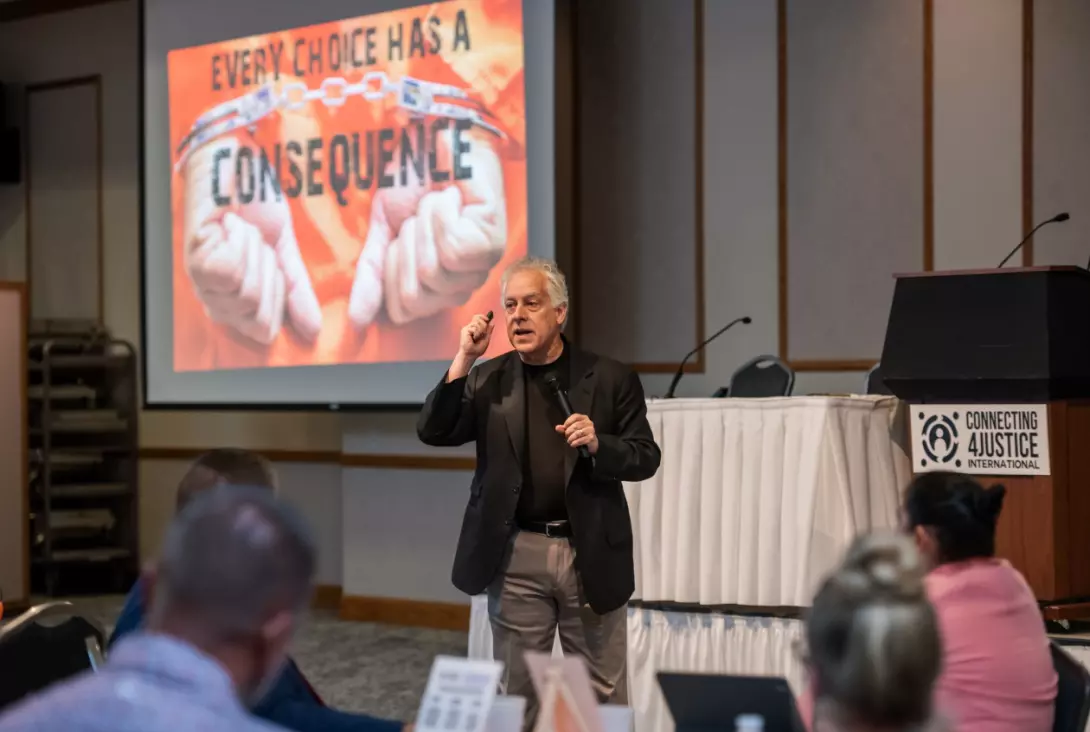
Keynote speaker shares his story of success after time in prison
The keynote speaker, Chuck Gallagher, was another formerly incarcerated individual. Gallagher’s presentation was “Victim or Victor: The Choice is Yours.”
“I don’t have a lot of tolerance for victims,” said Gallagher, who outlined seven ways a formerly incarcerated person can be victor after time in prison and not a victim, including owning their past and making a mindset shift from prisoner to purpose.
Gallagher went to prison for embezzlement and tax evasion but is now the vice president of sales for a national company, American Funeral Financial, and shares his story across the world.
He was part of another session, discussing reintegration with a superintendent of a prison in West Virginia, which attendee Perry Holloway said he loved listening to.
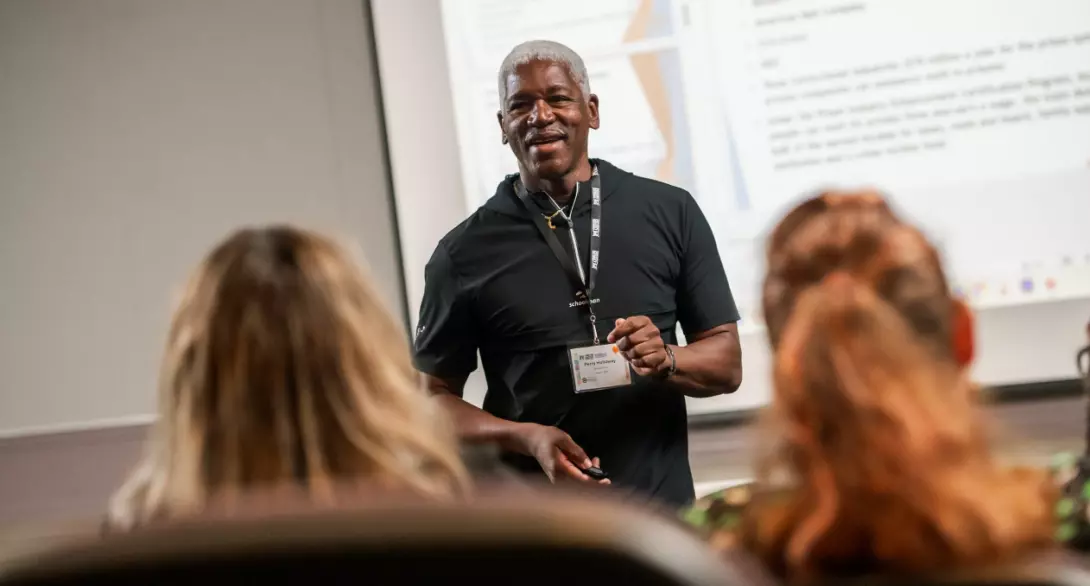
Ashland graduate travels from Texas to give a presentation
Holloway, a 1979 communications and marketing graduate of Ashland College who now lives in Texas, gave a presentation of his own titled, “From Mass Incarceration to Decarceration.”
At his presentation, Holloway, who does volunteer prison ministry, talked about how he advocates for legislative changes to reduce prison populations and develops initiatives aimed at preventing young people from entering the prison pipeline.
One initiative he mentioned that has deterred young people is the Scared Straight Program.
“When I was here I actually went on a Scared Straight session,” Holloway said about visiting a prison while he was a student at Ashland College. “A professor asked me to help with it and it scared me straight.
“I took my three boys to a Scared Straight session,” continued Holloway, who added that he got into his prison ministry because of those Scared Straight sessions.
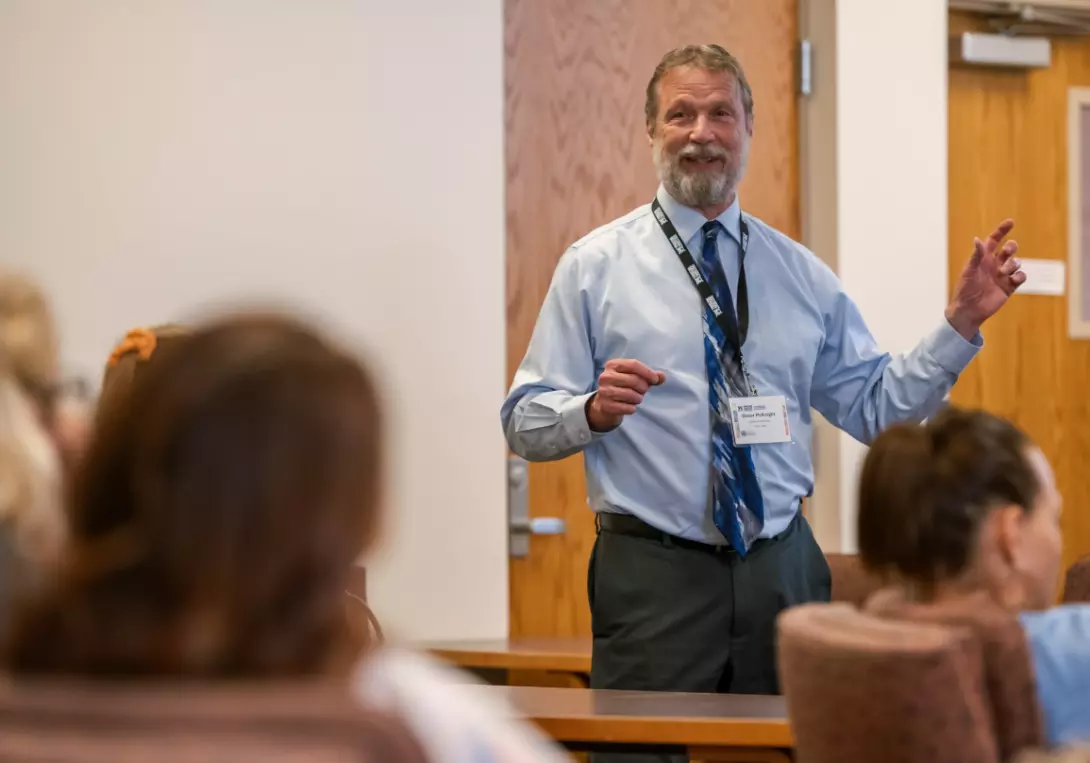
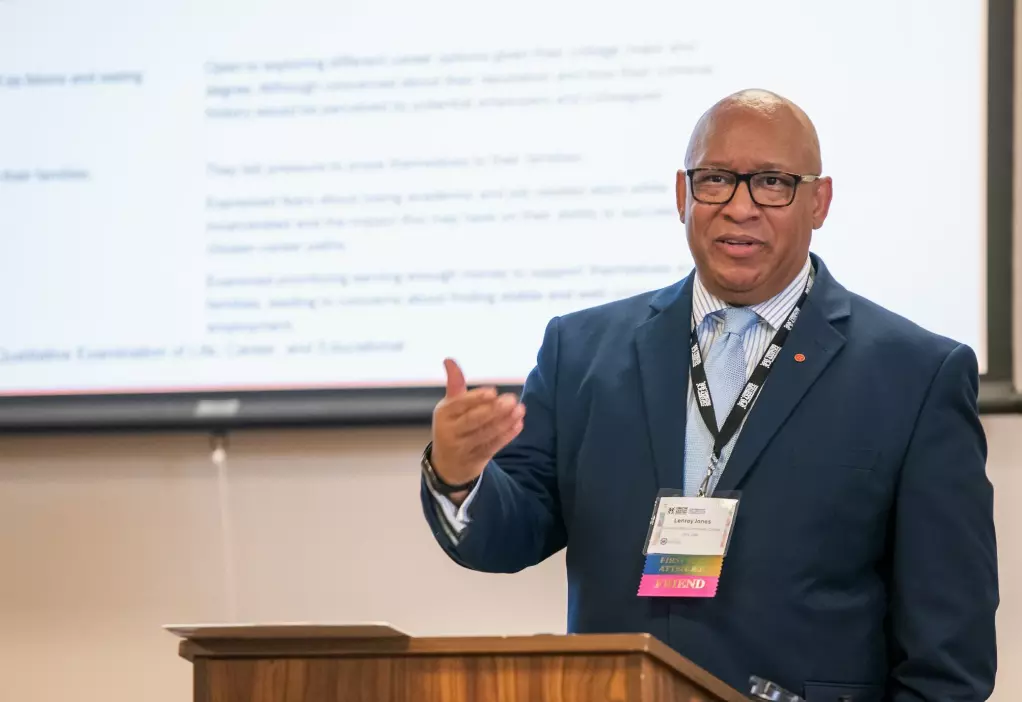
Another presentation with AU ties was given by Oscar McKnight, Ph.D., the director of AU’s Psychological Counseling Services, and Lenroy Jones from Columbus State Community College, who used to work for Career Center for Life Calling at AU.
Their workshop was named “Interviews with the Formerly Incarcerated Persons: A Qualitative Examination of Life, Career and Educational Expectations.”
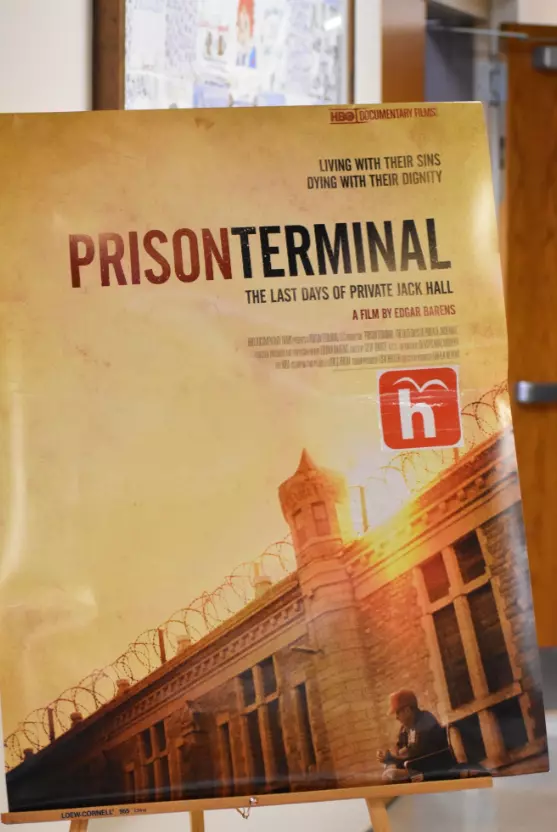
Film about hospice in prison a popular offering
One of the highlights of the conference was two showings of an Academy Award-nominated documentary film, “Prison Terminal: The Last Days of Private Jack Hall,” which Jim Cox, assistant vice president of correctional education at AU, said was a very emotional experience.
“I was in tears,” Cox said, “because it showed at the end of the day that life is about humans caring for humans, even in a cold place, cold not only environmentally but just in its nature. Human touch, human caring still pervades.”

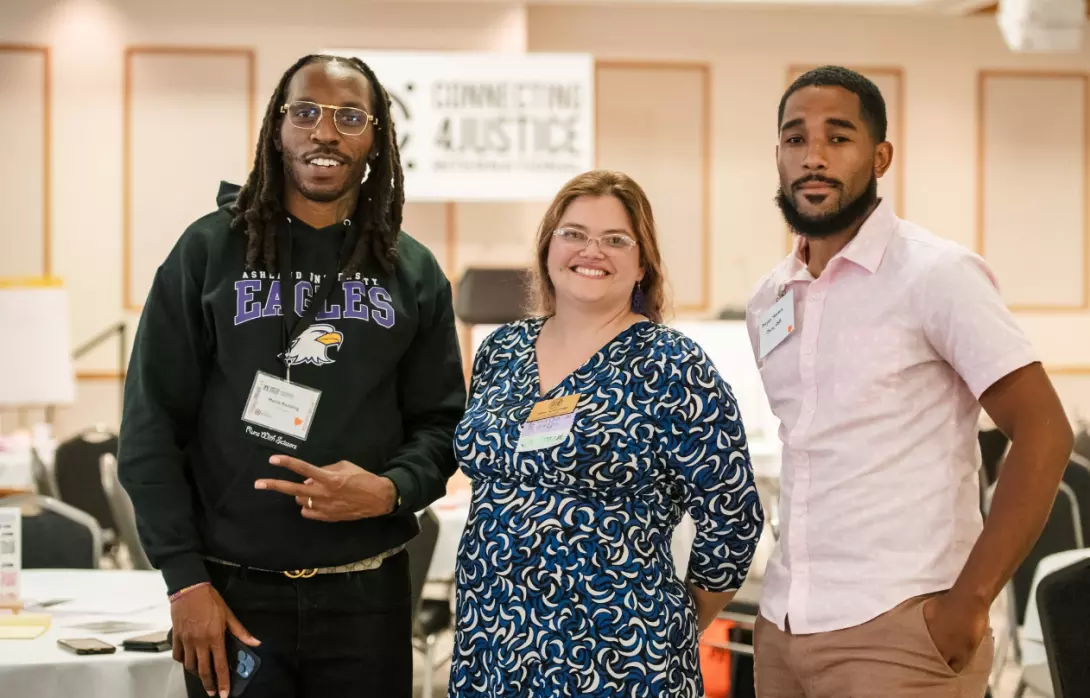
While Cox said he was happy with how the conference went, he hopes next year to help bring in more people who don’t work directly with transitioning the incarcerated back into society.
“Next time we need to bring in more citizens, elected officials and civic leaders who may know nothing about incarcerated education or may have a negative feeling about it,” Cox said, “and get them in the room because then we can have that dialogue to change minds and lives.”
AU will play host to the Connecting 4 Justice International Conference again in 2025, collaborating once more with The Ridge Project, an organization committed to breaking generational cycles of incarceration in families and communities throughout Ohio.
Cox said The Ridge Project introduced AU to Connecting 4 Justice International, an organization dedicated to supporting families impacted by the criminal justice system that has been having its annual conference for the past 16 years.
